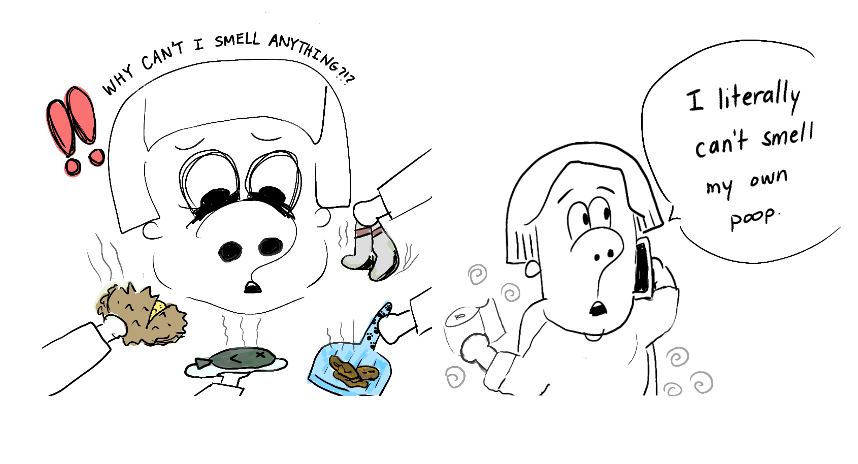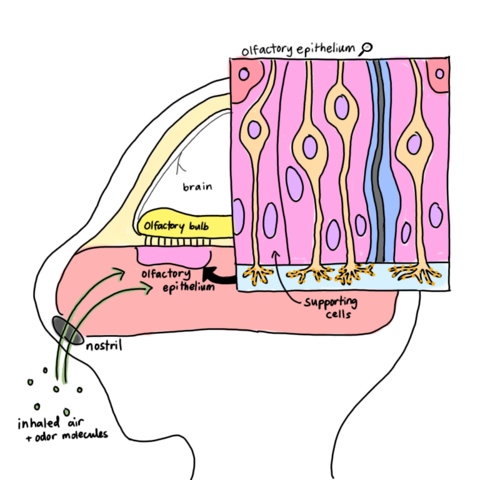COVID-19 and Loss of Smell: Who Nose?
By Phyllis Ung, Undergraduate Student, SciComm@UCR Mentee
Mentored by Hannah Chu, UCR Entomology
While COVID-19 is known for affecting the respiratory system, another more common symptom, anosmia, or the loss of smell, directs attention towards the brain.
What is anosmia?
Anosmia is the total or partial loss of smell. It is the most common neurological symptom reported among patients with COVID-19 and serves as a strong predictor for having the virus. COVID-19 patients usually develop anosmia early on and most recover within several weeks. However, in some cases, a patient's sense of smell takes much longer to recover and there is the possibility of permanently losing their sense of smell.The long-term permanent loss of smell, not only negatively impacts a patient’s quality of life, but can also be life-threatening. For example, having anosmia makes it difficult to sense environmental dangers such as smoke or gas leaks; it also may lead to unwanted loss of appetite, malnutrition, and weight loss.
Why does anosmia occur with COVID-19 and what is happening in the brain?
To learn how COVID-19 causes the loss of smell, we need to first understand how we smell. As you inhale air, odor molecules will travel up into your nostrils to a special layer of skin inside the nose called the olfactory epithelium. Neurons that project to the olfactory epithelium will pick up the odor molecules and send signals to the brain. Our brain then translates those signals, so we know what we are smelling.
Recent findings suggest that anosmia related to COVID-19 may be due to the virus targeting and damaging supporting cells found in the olfactory epithelium. Supporting cells help provide structural support and assist with metabolism.When supporting cells are damaged, they are unable to send scent signals to the brain. Luckily, supporting cells can regrow after COVID-19 treatment so as they return to their job, patients regain their sense of smell.
Why is this important?
Understanding how COVID-19 causes us to lose our sense of smell provides insight into targets of the virus, especially in relation to neurological issues. In addition to a better understanding of the virus, it has also brought attention to anosmia, which previously only affected a small percentage of the population. Now this invisible disability has now been experienced by millions of people due to COVID-19. While most people who had COVID-19 recovered their sense of smell, there are still many unanswered questions that require further research, including the lasting effects of anosmia. Continuing this important research may also prove to be helpful for diagnosing and treating those affected by anosmia.
References:
- https://doi.org/10.17879/freeneuropathology-2021-2993
- https://www.frontiersin.org/articles/10.3389/fphys.2020.625110/full?&utm_source=Email_to_ae_&utm_medium=Email&utm_content=T1_11.5e2_editor&utm_campaign=Email_publication&journalName=Frontiers_in_Physiology&id=625110
- https://academic.oup.com/chemse/article/doi/10.1093/chemse/bjaa081/6048917?login=true
- https://hms.harvard.edu/news/how-covid-19-causes-loss-smell#:~:text=“Our
- https://www.youtube.com/watch?v=h1kDzqpDlY0
- https://www.sciencedirect.com/topics/medicine-and-dentistry/olfactory-epithelium



